National symbols of Trinidad and Tobago
National symbols of Trinidad and Tobago are the symbols that are used in Trinidad and Tobago and abroad to represent the country and its people.
| Part of a series on the |
| Culture of Trinidad and Tobago |
|---|
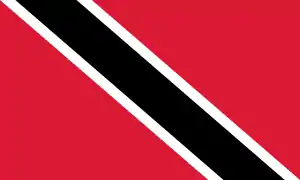 |
| History |
| People |
| Cuisine |
| Art |
| Sport |
|
Prominently, the Coat of Arms of Trinidad and Tobago is a Trinbagonian symbol, and is depicted on all its money.
Present Symbols
| Symbol | Media | Notes | |
|---|---|---|---|
| Flag | Flag of Trinidad and Tobago
|
 |
|
| National Anthem | Forged from The Love of Liberty | [] | The National Anthem was written to celebrate Trinidad and Tobago's independence from Great Britain on August 31, 1962. A nationwide contest was held and the winner of the contest was Patrick Castagne.[1][2] |
| Coat of Arms | Coat of Arms of Trinidad and Tobago | 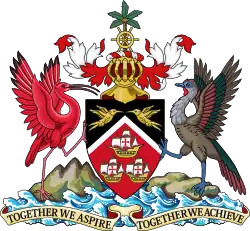 Coat of Arms of Trinidad and Tobago |
|
| National Motto | "Together We Aspire, Together We Achieve." | [] | The national motto was established by the late first Prime Minister Dr. Eric Williams, when Trinidad and Tobago achieved independence in 1962.[3][4] |
| National Flower | Chaconia (Warszewiczia coccinea) | .jpg.webp) |
The Chaconia, also known as the "Pride of Trinidad and Tobago" or "Wild Poinsettia" is an indigenous flower known by its long sprays of magnificent vermillion. Coincidentally, this flower blooms on every anniversary of our Independence Day (August 31, 1962).[5][6] |
| National Pledge | I solemnly pledge to dedicate my life to the service of my God and my country.
I will honour my parents, My teachers, my leaders and my elders, and those in authority. I will be clean and honest in all my thoughts, my words and my deeds. I will strive, in everything I do to work together with my fellowmen Of every creed and race, for the greater happiness of all and the honour and glory of my country. |
[] | [7] |
| National Bird | The Scarlet Ibis and The Cocrico | _(8629080871).jpg.webp) Rufous-vented chachalaca 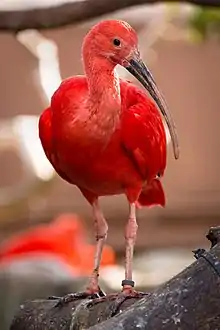 The Scarlet Ibis |
The Cocrico (Ortalis ruficauda), also known as the "Chachalaca," is a rufous-tailed, tropical pheasant indigenous to Tobago. They tend to inhabit the higher areas of the island amidst the forest and sometimes the dry scrubby lands bordering cultivated areas. The Scarlet Ibis (Eudocimus ruber) makes its home in the Caroni Bird Sanctuary in the Caroni Swamp—an area set aside by the government for the protection of these colourful birds.[8][9]
|
| National instrument | Steelpan | 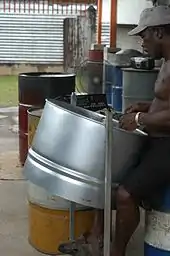 |
|
| National Colours of Trinidad and Tobago | [] | Red, White and Black | |
| National Watchwords | Discipline, Production, Tolerance. | [] | The national Watchwords was established by the late first Prime Minister Dr. Eric Williams, when Trinidad and Tobago achieved independence in 1962.[10][11] |
Former List of symbols
| Symbol | Image | Started-ended |
|---|---|---|
| Royal anthem | 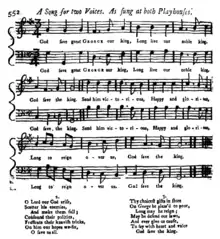 "God Save the Queen" |
31 August 1962 – 1 August 1976 (song dates to 1744) |
| Royal cypher | 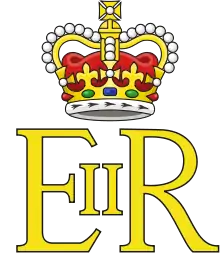 |
31 August 1962 – 1 August 1976 (dates to 1952) |
| Royal standard | .svg.png.webp) Queen's Personal Trinidadian Flag |
1966-1 August 1976 |
References
- https://otp.tt/trinidad-and-tobago/national-emblems/
- http://www.tntisland.com/
- http://archives.newsday.co.tt/2009/11/28/together-we-aspire-together-we-achieve/
- http://www.tntisland.com/
- https://otp.tt/trinidad-and-tobago/national-emblems/
- http://www.tntisland.com/
- "Trinidad & Tobago Independence Pledge". www.tntisland.com. Retrieved 2019-01-11.
- https://otp.tt/trinidad-and-tobago/national-emblems/
- http://www.tntisland.com/
- https://otp.tt/national-watchwords/
- http://www.tntisland.com/
.svg.png.webp)